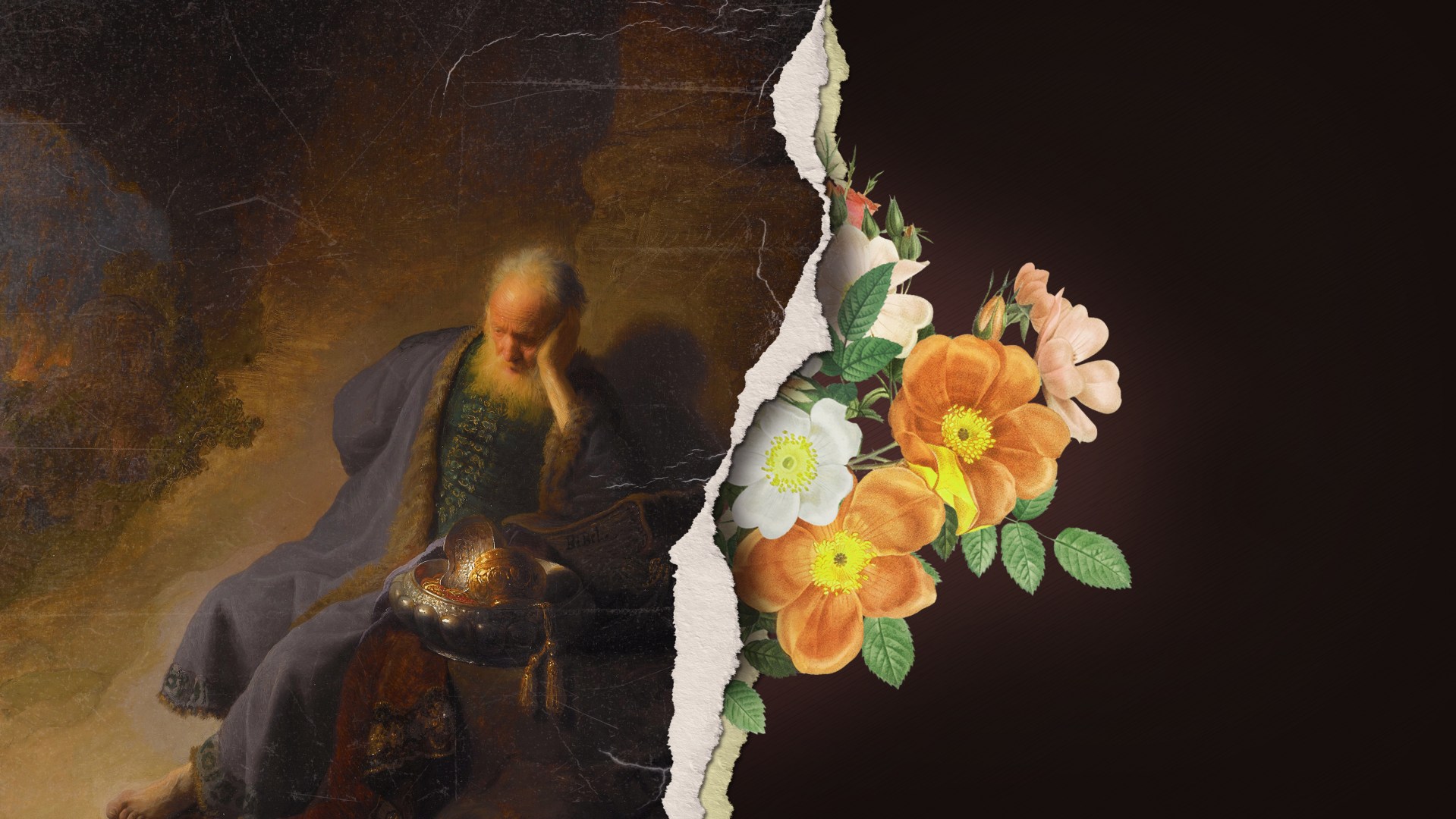The hardest parts of Scripture, in my experience, are not the bits you don’t understand. Failing to understand can be good; it can prompt thought, investigation, and discovery. No, the real trouble comes when you know exactly what is going on, and it doesn’t look good, true, or beautiful. Think, for instance, of the prophetic oracles of judgment against the nations, which run for page after terrifying page, with (apparently) no hope, no contemporary application, and no end in sight.
The last seven chapters of Jeremiah are a case in point. How can a book containing such glorious promises have such a depressing ending? There are nine oracles of judgment against the nations—Egypt, Philistia, Moab, Ammon, Edom, Damascus, Kedar and Hazor, Elam, and Babylon—followed by Jerusalem’s destruction. The judgments are severe and sometimes graphic. Four nations receive a one-verse promise of future mercy (46:26; 48:47; 49:6; 49:39), but these are just four droplets of hope in a seven-chapter desert of disaster. How do we find goodness, joy, and gospel in these passages? As happens so often in the Old Testament, we find an answer in the exodus story.
The final chapters of Jeremiah contain ten divine judgments: nine against foreign nations, and the last upon Judah itself. Ezekiel 25–33 runs through an equivalent sequence: nine oracles against nations and their kings, followed by Jerusalem’s destruction. And a similar pattern occurs in Isaiah 13–23. That is unlikely to be a coincidence.
Ten, of course, is a very significant number in the exodus story. We all know the Ten Commandments, and we may recall the wilderness generation forfeiting entry to the Promised Land by disobeying God ten times (Num. 14:22–23). Crucially, there were also ten plagues sent upon a foreign nation (Egypt), the last of which led to Israel’s deliverance in the middle of the night. Since the plagues are the paradigmatic biblical example of judgment on foreign nations, it is possible that Jeremiah, Isaiah, and Ezekiel are deliberately presenting their oracles as plagues of judgment.
Looking closer, we see other clues. Jeremiah begins his oracles with Egypt (46:2). He ends with an escape in the middle of the night, with enemies in hot pursuit (52:7–9). His imagery in these chapters includes the river Nile, biting flies, dead livestock, locusts, judgment upon Pharaoh and Egypt’s gods, the overthrow of horses and chariots, and the sea drying up.
Reading Jeremiah with that in mind, at least three things become clearer. The first is that we are witnessing a battle of the gods. Repeatedly, Jeremiah reminds us that Amon, Ra, Chemosh, Molech, Bel, Marduk, and company are being exposed as a sham. Our culture may worship different gods—Ares, Mammon, Bacchus, Aphrodite, Gaia—but they are just as powerless to save. When God brings judgment, their impotence is revealed, which is cause for celebration.
The second revelation is that the climactic judgment falls upon God’s people. In Exodus, the tenth plague strikes Egypt, and Pharaoh loses his firstborn son. But in Jeremiah, the tenth judgment strikes Jerusalem, and King Zedekiah loses both of his sons before being blinded and deported to Babylon. Oppression and idolatry among the nations provoke plagues of judgment; in Zion the consequences are even worse. Israel can’t scapegoat a depraved world while there are idols in the sanctuary.
The third thing to notice is that after the tenth plague comes deliverance. In Exodus, after God’s people have been mired in slavery for four centuries, judgment comes and they are graciously freed from captivity. Jeremiah ends the same way. God’s people have been mired in idolatry for four centuries, and judgment has come. But the final four verses show King Jehoiachin being graciously freed from captivity, given fresh clothes, raised above all other kings, and seated at the royal table (52:31–34).
Amid judgment, God remains gracious. Jehoiachin has hope and a future, and so do his people. In the years to come, one of them will be lifted from the prison of death, given fresh clothes, raised above kings and nations, and seated at the royal table. And he will invite everyone—including foreigners like me from idolatrous nations that deserve judgment—to join him.
Andrew Wilson is teaching pastor at King’s Church London and the author of God of All Things. Follow him on Twitter @AJWTheology.










